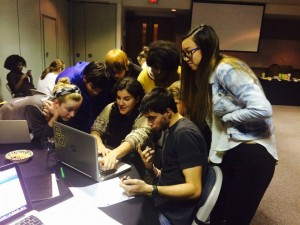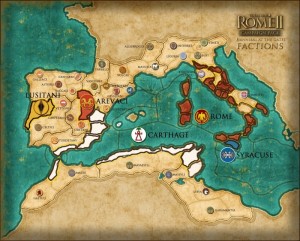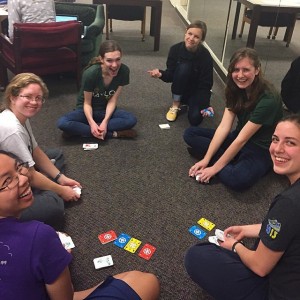College students are often associated with the stigma of extensive caffeine intake, mastering the art of memorization instead of learning, and a significant lack of sleep. Well let me set the record straight on behalf of all my fellow college kids: the stigmas are true. Although course load varies from major to major, almost any student can relate to the constant desire for naps. Sleep deprivation is either the result of long nights of cramming or Netflix binging – regardless, it is more than prevalent on campus.
What is the harm in a couple sleepless nights? Students, especially in the BIC, often believe an A on the World Cultures test or Rhetoric Speech to Actuate is worth a little exhaustion the next day. We have the mindset that studying and succeeding in the classroom can substitute for the mindless act of sleeping.
Well, science proves otherwise.
According to David Dinges, a professor of psychology and the director of the Unit for Experimental Psychiatry at the University of Pennsylvania, sleep is pretty darn important.
“When people get sleep-deprived, they don’t show positive emotion in their faces,” Dinges said. A sleep-deprived person may be happy, but their facial expression will stay neutral and unchanged. Positive emotions are difficult for sleep-deprived people to recognize in others and display themselves. The tolerance of disappointment is very low for people who do not achieve sufficient sleep.
Moreover, have you ever caught yourself staring into space after a long night of studying? Those are called “microsleeps.” Microsleeps are mini-snooze sessions that can last up 30 seconds – your eyes are open but they are essentially blind and your brain goes into a sleep state rapidly and uncontrollably. This is can be detrimental during lecture, but lethal if behind the wheel.
The amount of sleep we achieve every night does not only affect us academically, but also impacts our social interactions, our health, and our safety.
Now I think we can all relate to this next side effect of sleep deprivation: delirium. Delirium is the state where we become “loopy” after a minimal amount of sleep – more familiarly known as the stage that comes after grogginess, extended yawns, and teary eyes. It is the surge of energy we feel when overtly exhausted that causes disorientation and confusion. It is a false sense of hyperactivity that eventually results in the final collapse of our physical being.
Okay, so yes, students do not sleep enough, especially BICers, but so what?
Sleep will always be more beneficial to us than we will ever understand. According to Harvard Medical School, “the quantity and quality of sleep have a profound impact on learning and memory.” Research suggests that a sleep-deprived person cannot focus adequately and therefore cannot retain any new knowledge. Additionally, sleep itself has a role in the unification of memory – a valued attribute for learning new information.
I can continue to list every Google search answer for the benefits of sleep and hindrances for a lack of it, but that is the Internet’s job. Instead, I am going to explore why sleep has become a compromising factor rather than a priority.
Do we sacrifice sleep because we believe it is a waste of time compared to finishing a New York Times assignment? Or do we do it because why sleep when you can learn everything you ever need to know about anything for World Cultures?
We do it because we want to achieve. Yes, we would rather lose sleep over Netflix binges, but the fact of the matter is that we do it because we want to excel. We pride ourselves on being the best, which is why we are BICers. We want to be the best versions of ourselves that we can be because, in the long run, we are the only determinants of our futures.
Plot twist: We can only be the best versions of ourselves if we sleep. Sleep, ladies and gentlemen, and watch the world become a much happier, memory-worthy, wide-eyed place for all of us.
Think about it the way Albert Camus did, “Some people talk in their sleep. Lecturers talk while other people sleep.”
Let us all be the former in this situation.
Kassie Hsu is a freshman BIC student majoring in neuroscience.
References:
http://healthysleep.med.harvard.edu/healthy/matters/benefits-of-sleep/learning-memory









